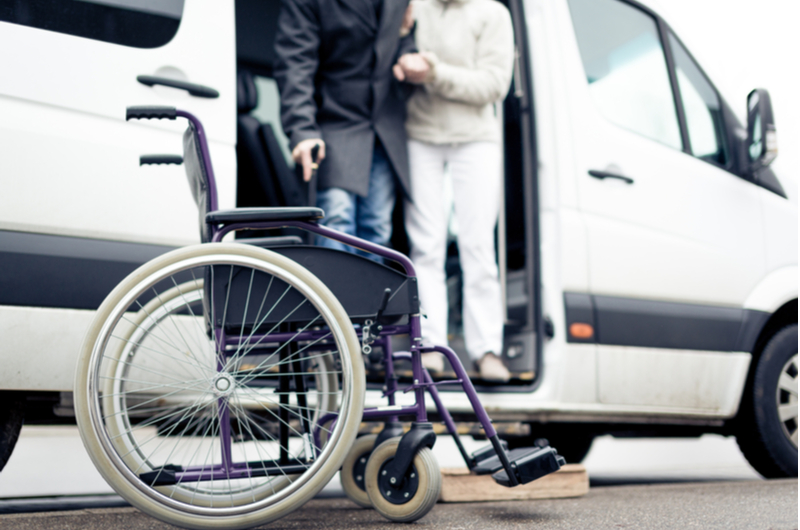Assisted Living Options for Disabled Adults
If you are a disabled senior citizen, it can be a challenge to find acceptable housing. There are multiple options available for assisted living. Some communities are designed for mostly independent seniors who only need minimal assistance with their disability, while other communities provide greater care throughout the day.
The main factors to consider when you are looking for an assisted living community is the level of support it provides, where it is located and how much it costs. There may also be personal preferences to consider as well, such as how close it is to your family members. Listed below are some of the most popular assisted living options for disabled adults.
Independent Living
If you have a minor disability and are still able to take care of yourself without assistance, consider an independent living community. With independent living, you live in a private condo or apartment within a senior community. There are various senior facilities located throughout the community. This includes laundry, restaurants, transportation and housekeeping services. Independent living facilities are normally located close to health centers, but unlike with other types of communities, there are no health professionals on hand. Independent living communities are more focused on providing social and entertainment opportunities for seniors.
Some communities are designed for lower-income seniors. If you are specifically looking for lower-income independent living facilities, consider checking for communities participating in the Supportive Housing for the Elderly Program, also known as Section 202.
Assisted Living Communities
Assisted living communities are intended for seniors who are mostly independent, but still require assistance with certain activities around the home. The majority of seniors live in private homes, though some communities have options for live in caregivers. Most of the seniors in an assisted living community only have a physical disability. Some of the tasks they may need help with include bathing, preparing meals or taking medication. A caregiver comes by to help with these tasks, but otherwise, you are responsible for everything else.
Assisted living communities offer additional services. The majority of services have transportation options, while others community provide housekeeping services or activity centers. Some assisted living communities also partner with local health centers, with health care professionals showing up directly at your home to provide assistance. If you are looking for lower-income assisted living communities, HUD runs the Supportive Housing for Persons with Disabilities Program, Section 811 housing.
Home Care
Home care provides in-home support for disabled seniors who are unable to take care of their homes without assistance. Home care is not the same as living in a nursing home. The main difference is what level of care is available. With a nursing home, medical staff is available at all times, and you receive much more care with all your tasks. For at home care, you still receive a great deal of assistance, but you also retain a level of independence.
For many seniors, the biggest appeal of home care over living in a nursing home is the ability to set your own schedule. In a nursing home, your staff often dictates large portions of your schedule. With home care, there are some staff considerations to keep in mind, but for the most part, you tell a caregiver what you want to do, and he or she works around your schedule.
Some seniors use home care temporarily if they are dealing with a new injury or illness, but are expected to recover. Some common tasks a caregiver assists with include general housekeeping, meal preparation and delivery, escorting you to apartments and assisting with shopping. You can also request help with bathing and getting dressed. Caregivers also help with any of your medical tasks, such as changing bandages, administering injections or monitoring your vitals.
Nursing Homes
Nursing homes are intended for seniors who are unable to support themselves without the assistance of a caregiver. Nursing homes are strongly recommended for seniors who have a mental disability, such as dementia or Alzheimer’s. Nursing homes provide specialized care throughout the day. The staff handles day to day responsibilities.
The additional support means you do not have as much freedom compared to other assisted living options. Many nursing homes allow family members to visit, and depending on your condition, your family may even be allowed to take you outside of the facility. Nursing homes are normally expensive, but your insurance may cover the majority of the costs, especially if you have Medicare or Medicaid.
Social Security Retirement Options
Assisted living is often expensive, but there are several financial options available to seniors. If you receive Social Security income, you are also eligible for State Supplementary Payments, sometimes known as Optional State Supplements. This program offers financial assistance in addition to your basic Social Security income. The payments are made directly to your assisted living community. The exact amount available largely depends on your existing income and the state you live in.



 Always make sure to contact CCRCs, senior living facilities, independent living centers, and active senior housing managers near you. From there you can determine exactly what type of senior apartment will be best suited for your lifestyle and expectations. Make sure you schedule a free tour beforehand with the retirement community.
Always make sure to contact CCRCs, senior living facilities, independent living centers, and active senior housing managers near you. From there you can determine exactly what type of senior apartment will be best suited for your lifestyle and expectations. Make sure you schedule a free tour beforehand with the retirement community.